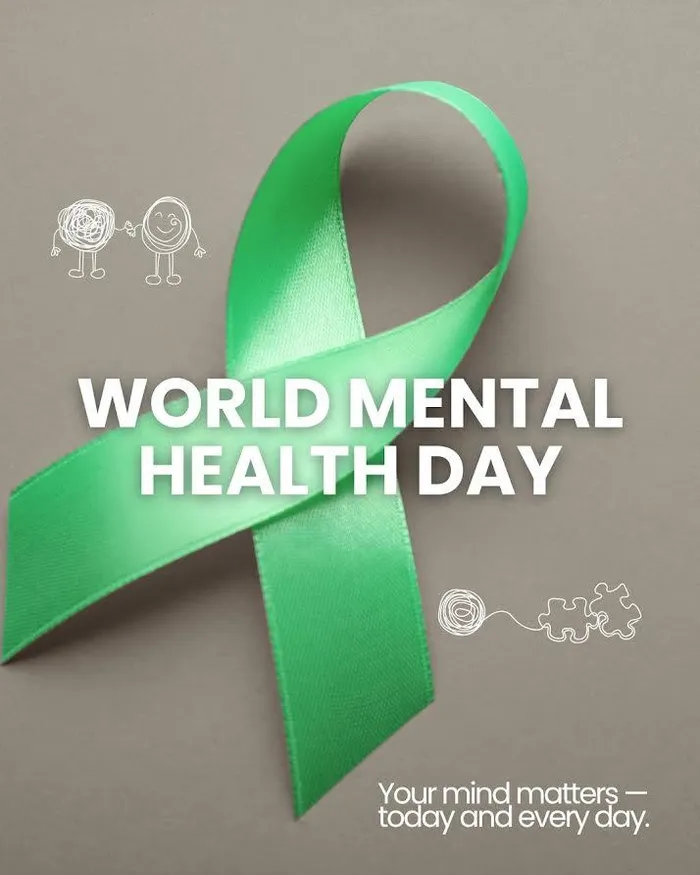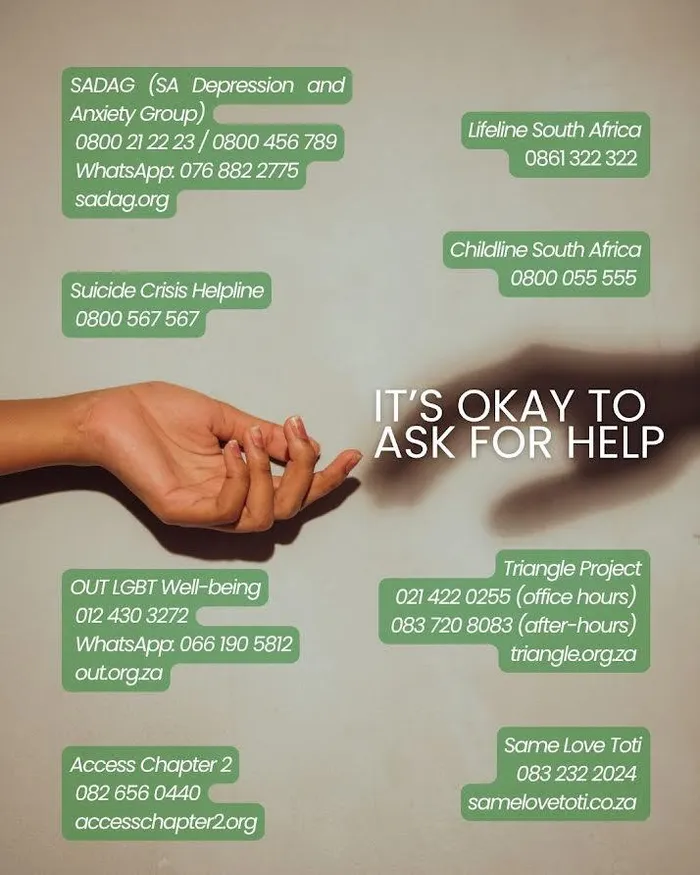
October 10th is World Mental Health Day; remember, you are not alone in your journey,
Image: Azraa Sardine
As South Africa observes World Mental Health Day this Friday, October 10th, the nation faces an escalating mental health crisis often described as a 'silent pandemic'.
The nation's ongoing crisis is challenging, worsened by socio-economic inequality, historical trauma, and chronic gaps in access to mental health care and support.
In line with the World Health Organisation’s (WHO) declaration that “mental health is a universal right,” the South African Depression and Anxiety Group (SADAG) is intensifying its efforts under the 2025 theme Together for Mental Health.
This year's initiative highlights the importance of collective accountability, calling on government, healthcare providers, communities, and individuals to play an active role in promoting and protecting mental health.
Statistics paint a concerning picture, demonstrating that this crisis is deeply interwoven into the reality of South Africa's burden of disease.
Revealing statistics indicate that one in six South Africans is likely to experience a mental disorder like depression, anxiety, or substance abuse in any given year (National Planning Commission, 2024). Other research suggests a lifetime prevalence of up to 30.3% of the population (Professor Crick Lund, 2025).
For those who suffer from a severe mental disorder, a staggering 90% do not receive the care they need (Health-e News, 2025).
As few as 27% of those with a severe disorder never receive treatment (NPC, 2024).
For many, daily life in South Africa is an ongoing emergency. A reality that tragically aligns with the global focus of World Mental Health Day, which recognises mental health as a critical, often catastrophic issue. South Africans face a complex web of challenges, including financial disparity, youth vulnerability, and persistent stigma, all of which exacerbate the mental health crisis.
Financial Disparity: With the majority of South Africans depending on the under-resourced public health sector, some provinces have spent as little as 2% of the healthcare budget being allocated to mental health services.
Most of this funding is directed towards costly inpatient psychiatric hospitals rather than essential community-based support systems, according to Wits University & NRF studies.
Youth Vulnerability: Young people in South Africa are at risk, carrying a disproportionate mental health burden. According to a 2021 UNICEF U-Report poll, 65% of youth who reported experiencing a mental health issue had sought no help.
Alarmingly, many mental health disorders begin before the age of 14, highlighting the urgent need for targeted mental health programmes within schools.
Stigma Barrier: As a country currently facing a mental health crisis, deeply rooted societal stigmas, along with cultural expectations of 'masculine stoicism', often prevent individuals, especially young men, from seeking help.
According to the SADAG, this silence fuels harmful coping mechanisms such as substance abuse and is linked to the country’s high rates of gender-based violence (GBV).
Recognising that mental health is not a solo journey is the first step toward change. What is needed here is political will and structural reform desperately.
On this World Mental Health Day, we must ensure that every citizen has the fundamental right to mental health care and services, regardless of their status or location. This is where the journey toward a truly healed nation starts when we walk it together.
South Africa must move beyond awareness to action.
Should you or anyone you love suffer from mental health challenges, immediate support lines can be found below.

This World Mental Health Day, let's break the stigma as a nation!
Image: Azraa Sardine